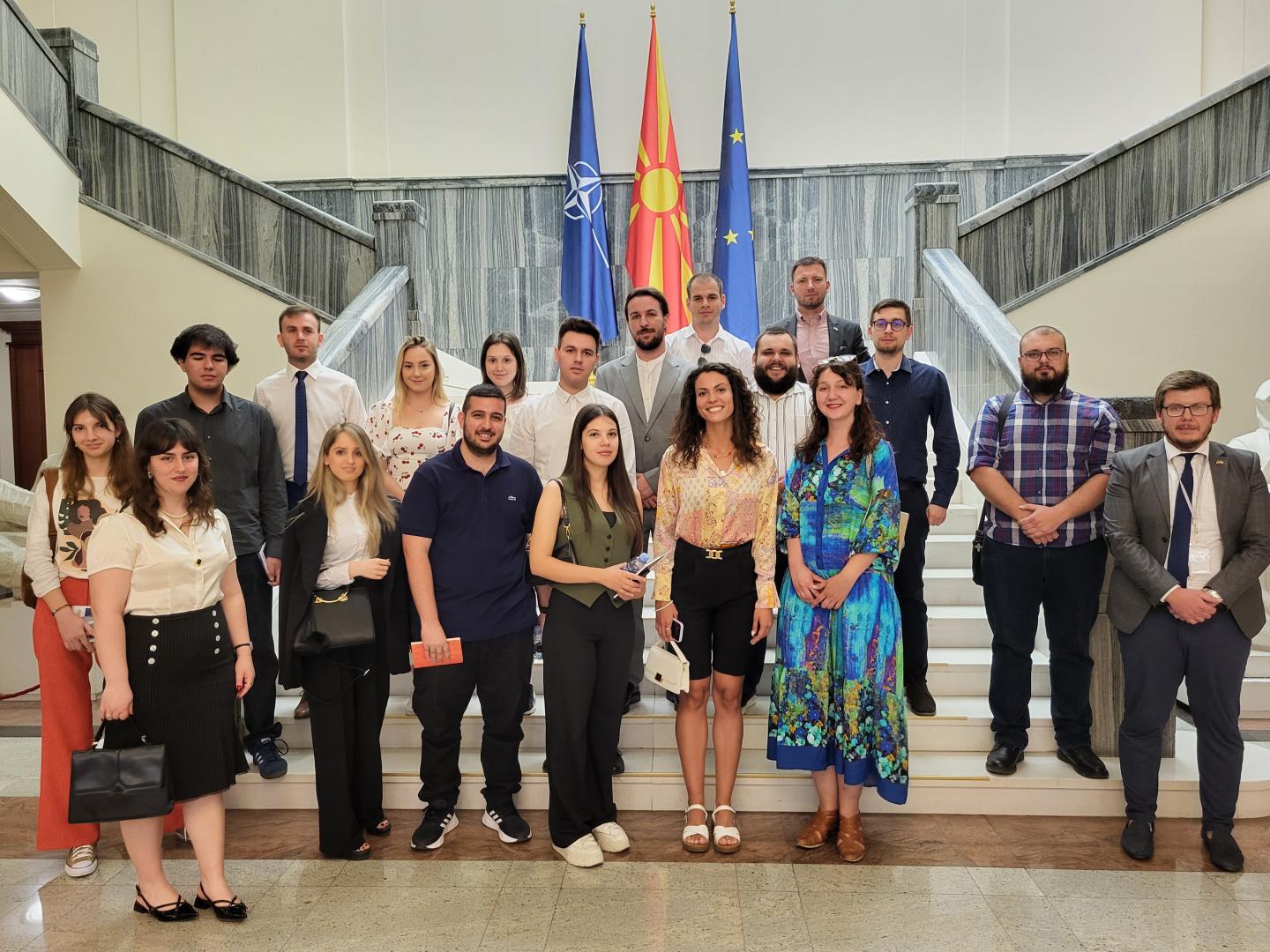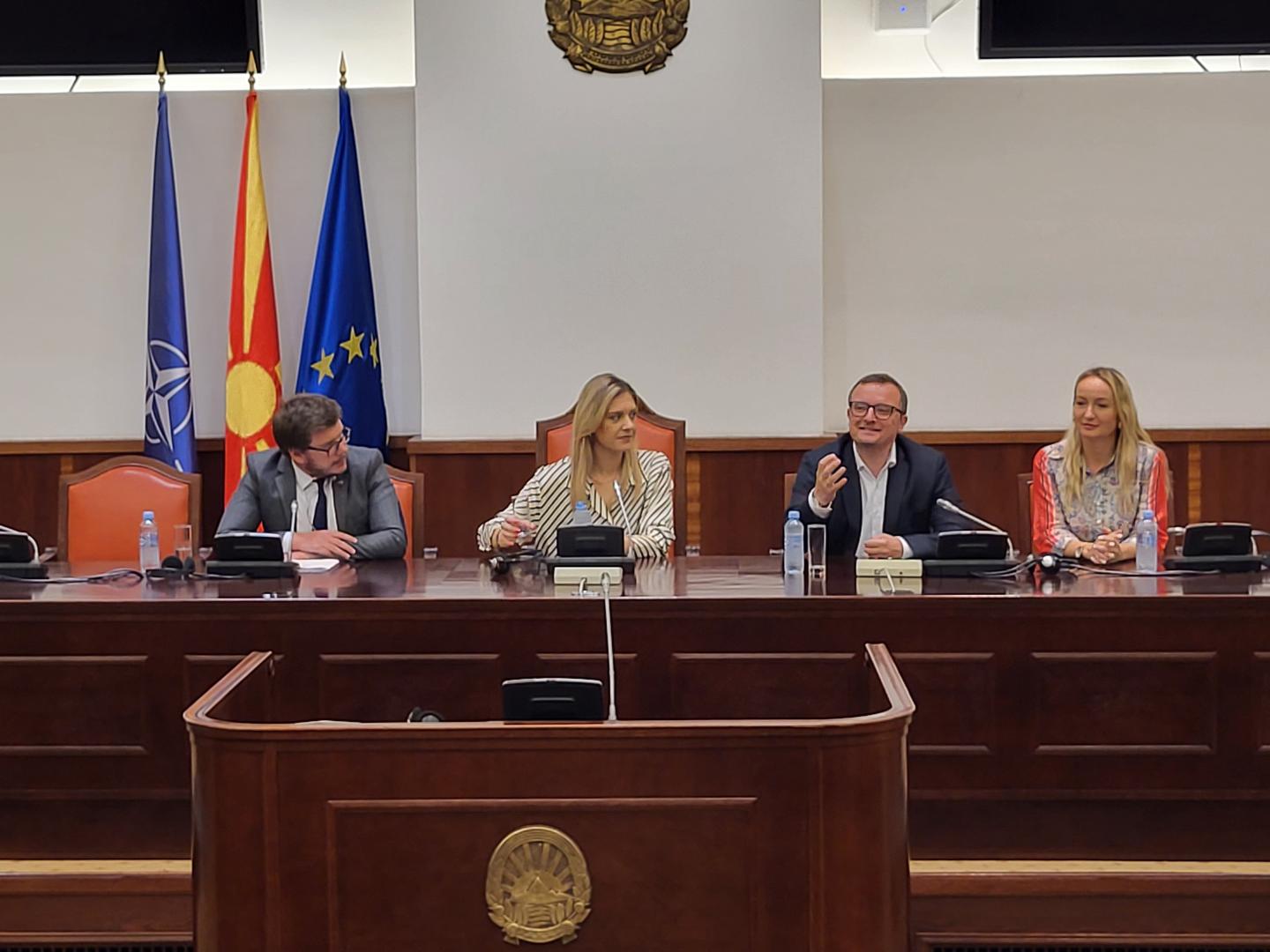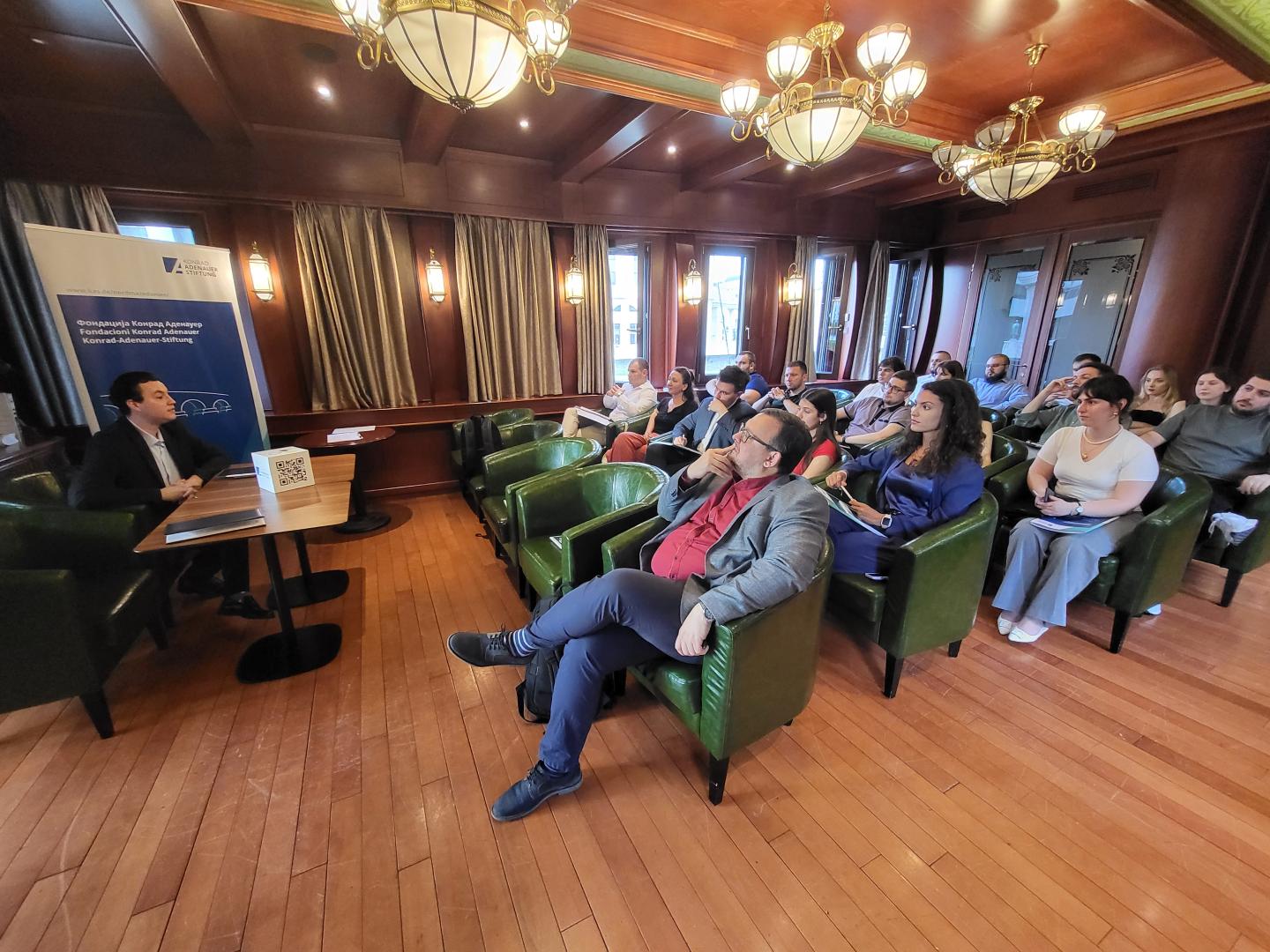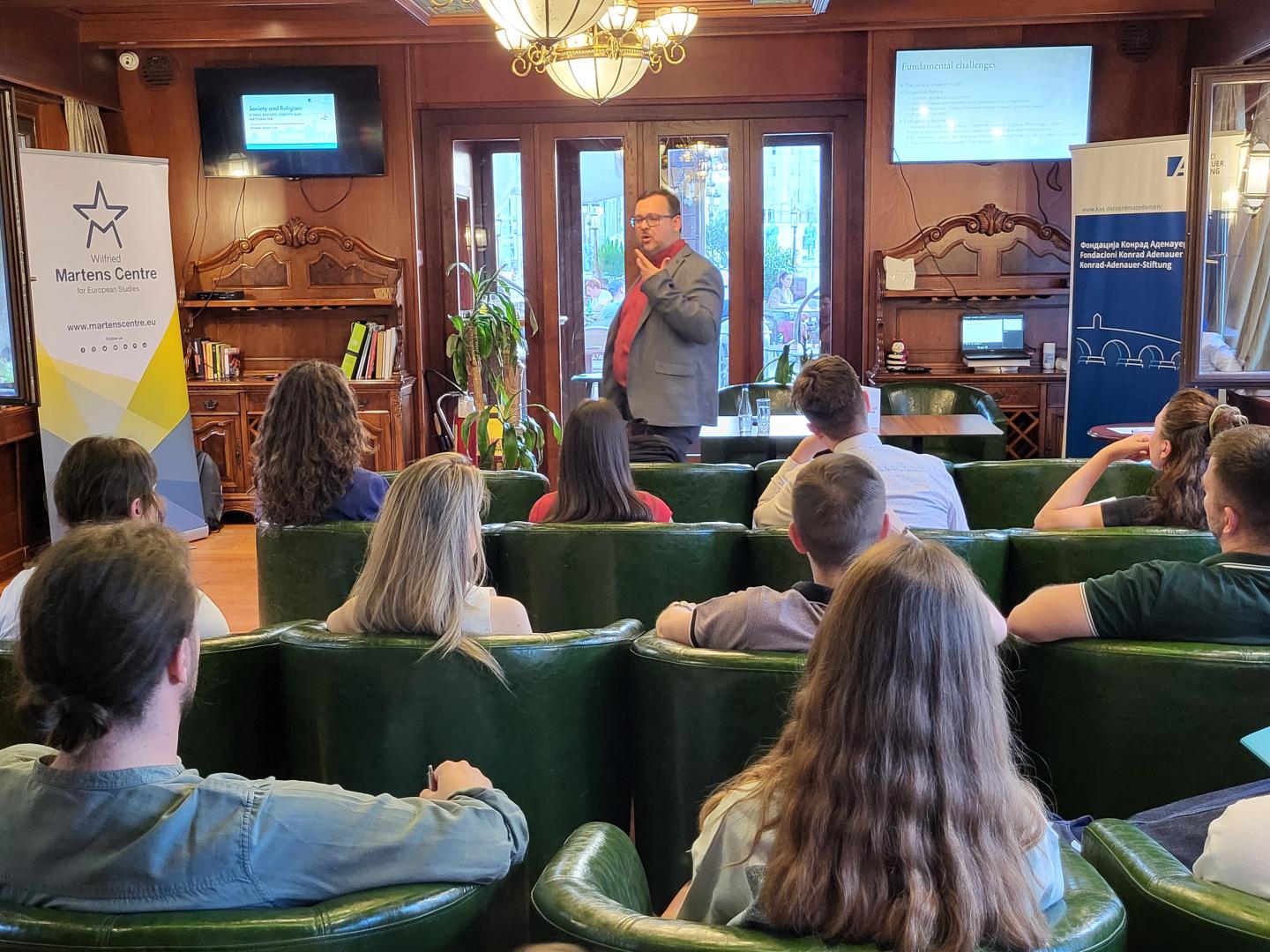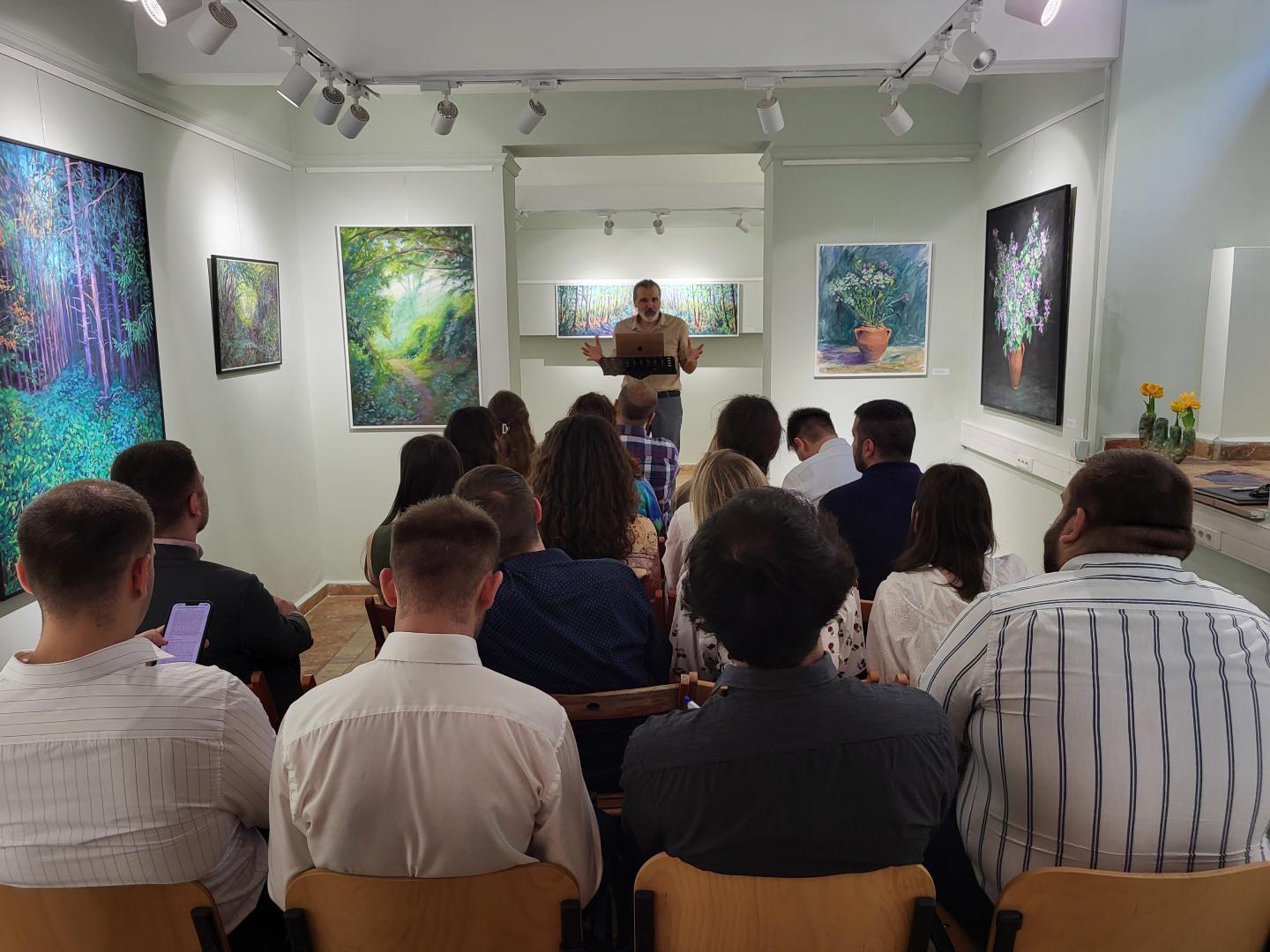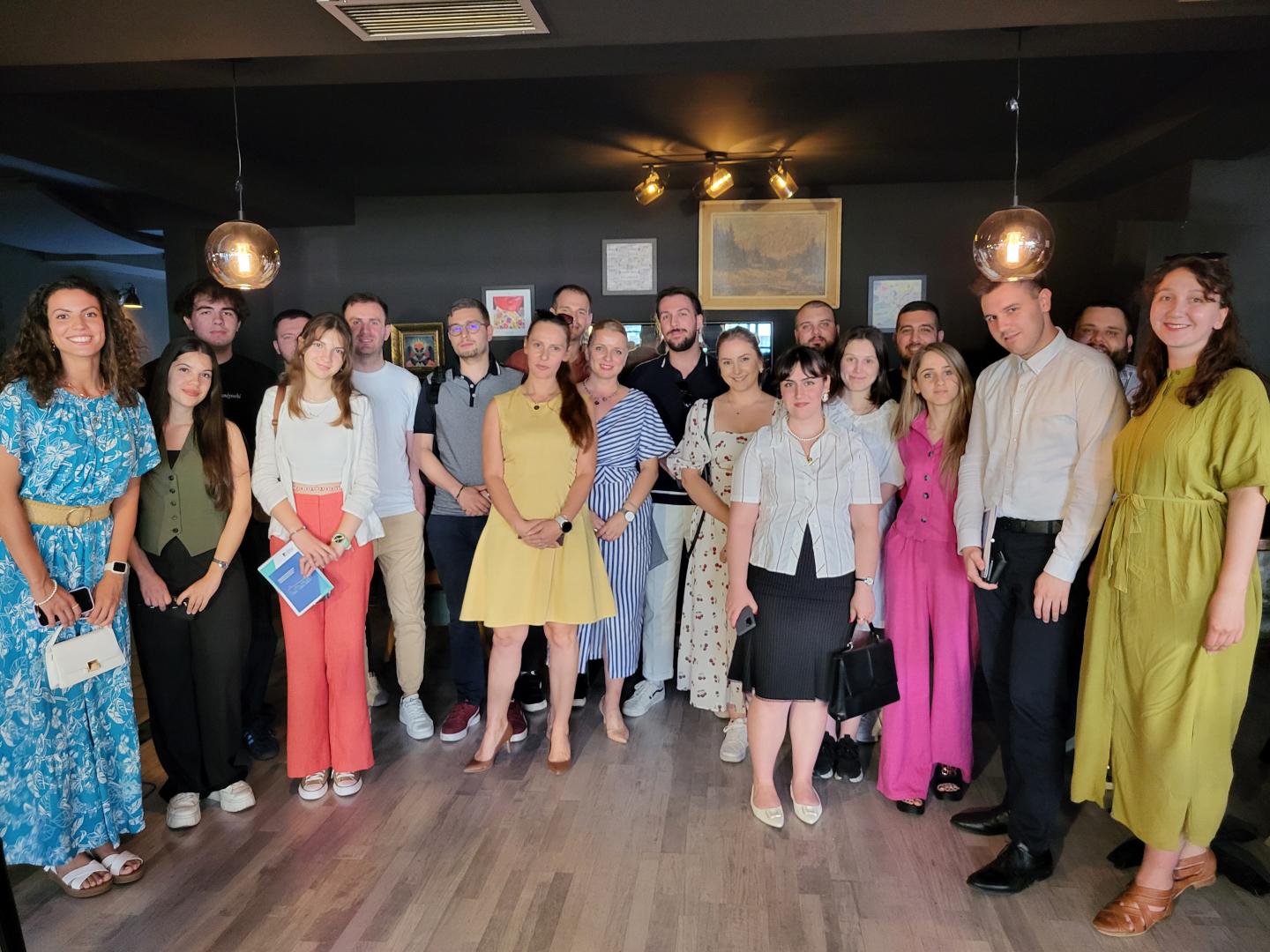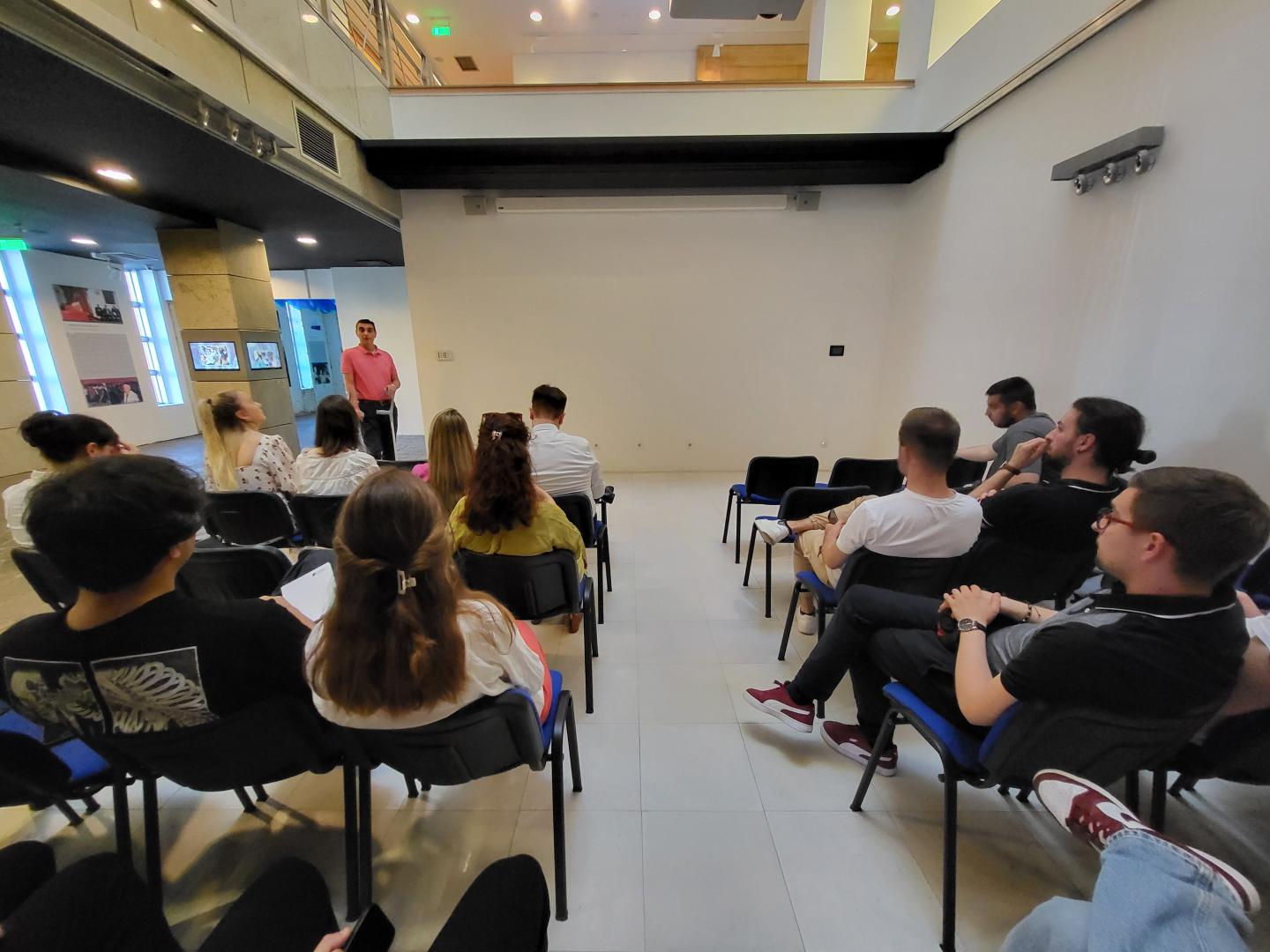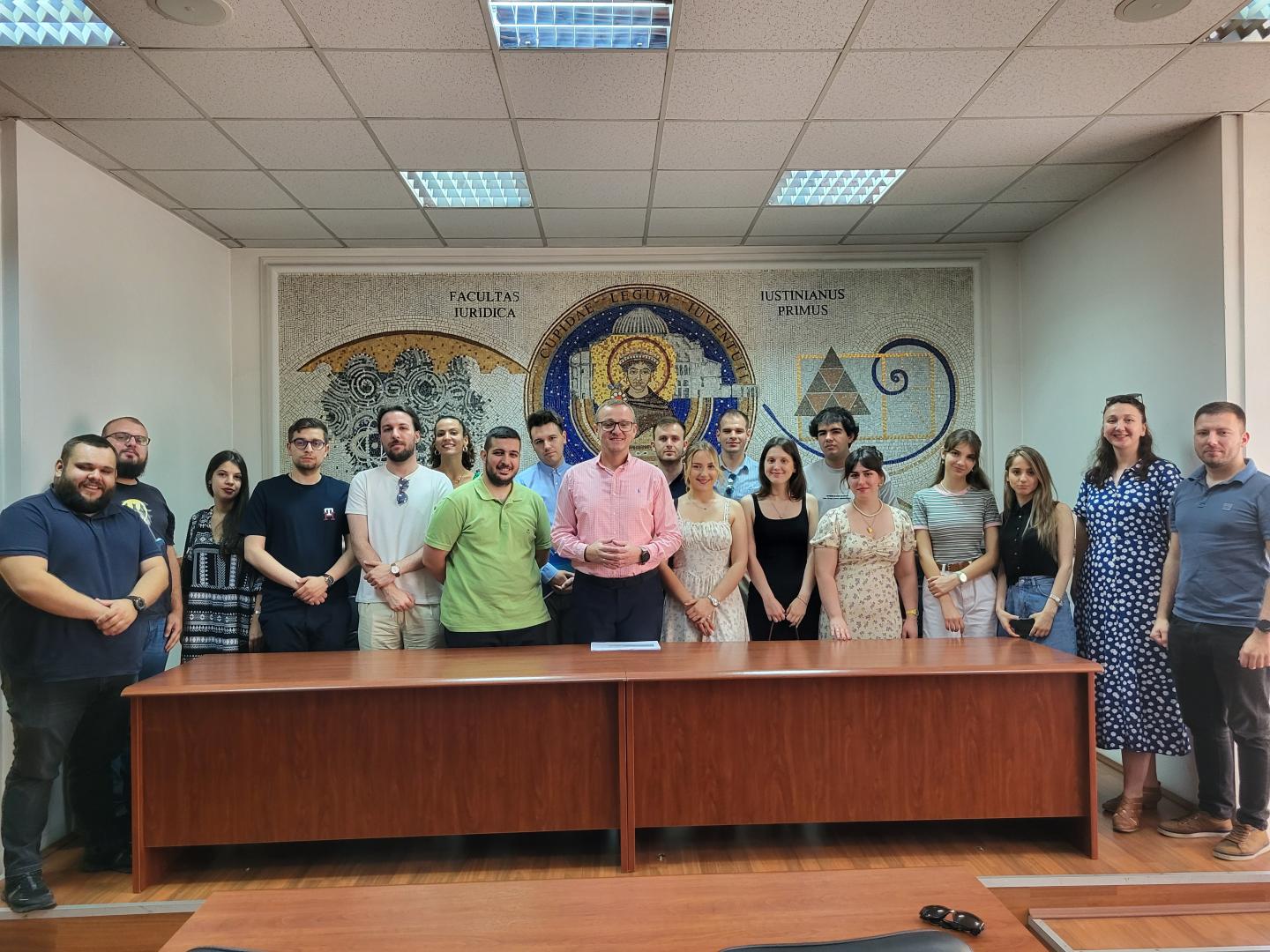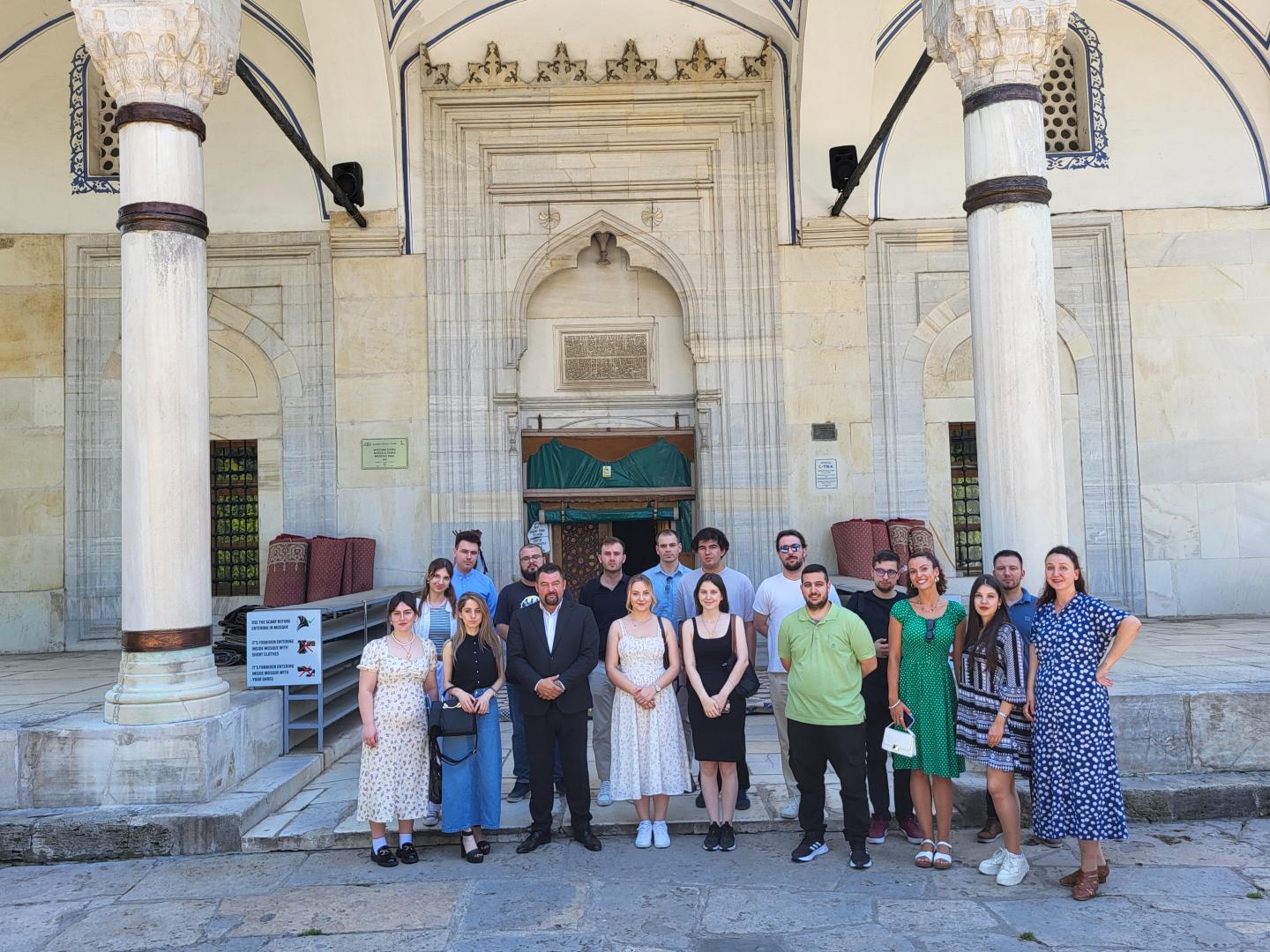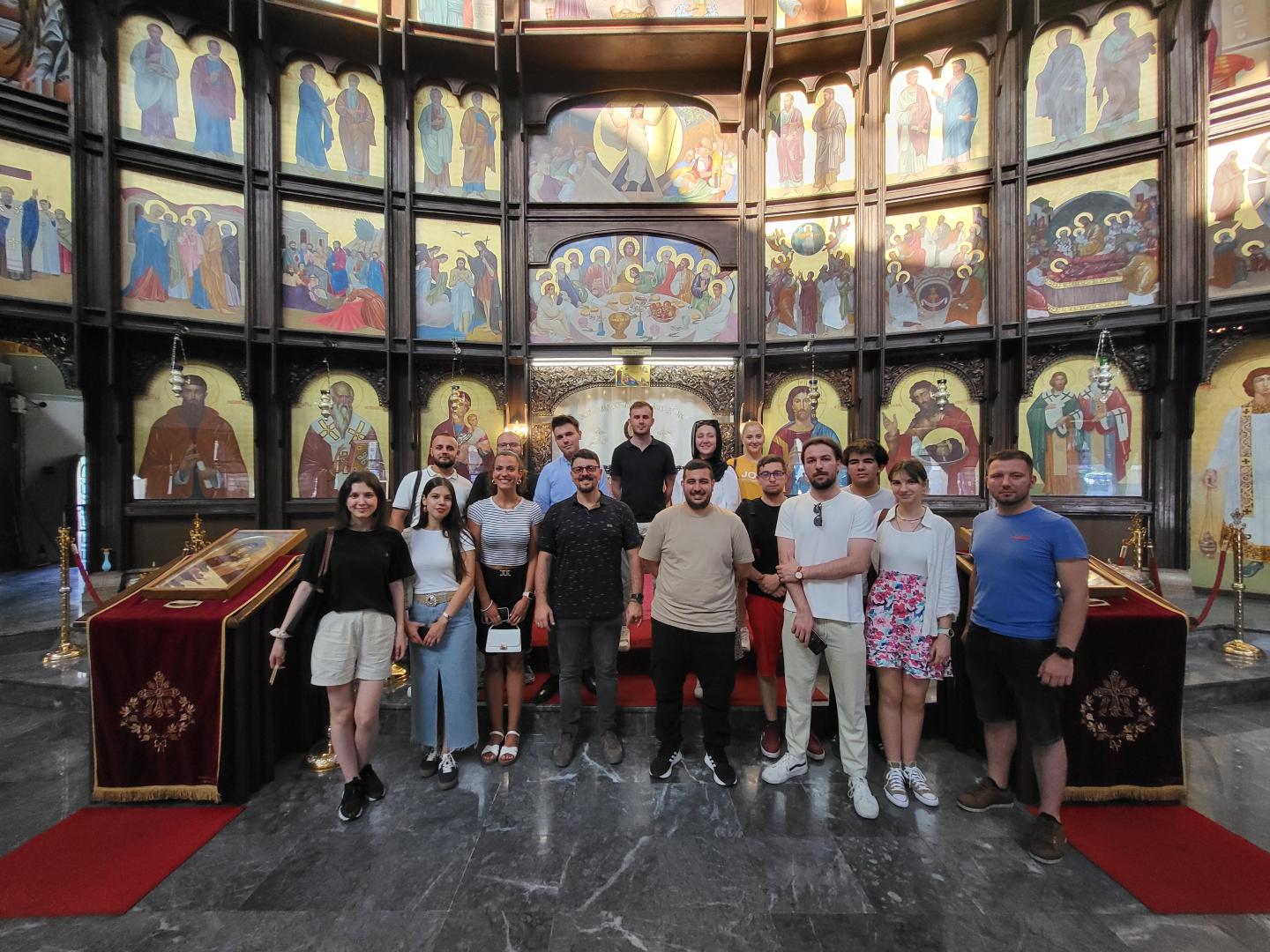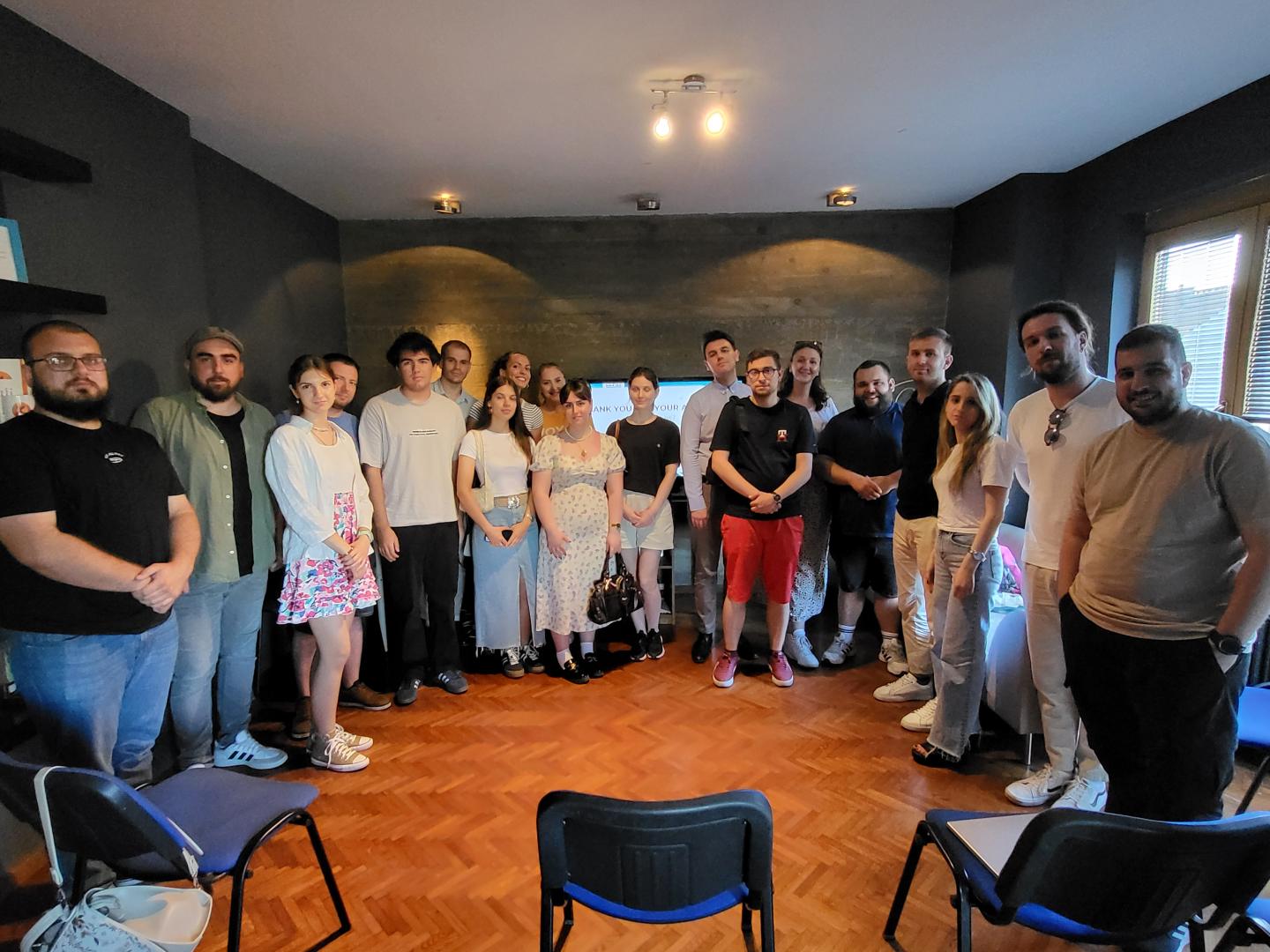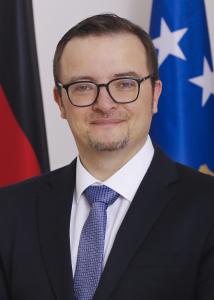The event aimed to provide students with a comprehensive understanding of the relationship between society and religion, explore the dynamics of ethnic identity and nationalism, and highlight the role of education, media, and cultural heritage in fostering peaceful and inclusive societies.
The summer school started with an official opening by Daniel Braun, Official representative of the Konrad Adenauer Foundation and Georgios Dimakos from the Wilfried Martens Centre for European Studies, who emphasized the importance of dialogue and understanding among youth coming from the region.
Nenad Markovikj from the Faculty of Law “Iustinianus Primus” - Skopje delivered a lecture on "Rethinking Security and Stability in South-Eastern Europe: Pledging for Lasting Peace," focusing on the security challenges in Southeast Europe and strategies for achieving long-term peace.
The activities continued the next day with a study visit of the Assembly of North Macedonia where a panel discussion was held on the topic "National Parliaments as Guarantors in Protecting Human Rights" with MPs Marija Petrushevska and Marija Miteva and moderation by Tome Gushev from the Parliamentarian Institute. The discussion highlighted the role of national parliaments in upholding human rights and democratic principles.
In the following session Kosta Milkov from the Balkan Institute for Faith and Culture in Skopje gave a lecture on "The Importance of Education in Building Peaceful Societies," emphasizing how education can foster understanding, tolerance, and peaceful coexistence within diverse community.
The afternoon activities started with Biljana Nasteska-Kalanoska and Verce Kostovska from the Association of Journalists in Skopje, who talked on "The Role of the Media in Construction of Public Belief and Social Change," examining the media's influence on public perception and its potential to drive social change.
The second day of the programme ended with study visit of the Holocaust Memorial Centre where Goran Sadikario led a tour around the Memorial Centre and introduced the participants with the tradition and culture of the Jewish Community as well as the history of the Holocaust of the Jews emphasizing the moral values of remembrance.
The next day participants had the opportunity to visit the Faculty of Law “Iustinianus Primus” in Skopje and follow a lecture by Prof. d-r Aleksandar Spasenovski on the topic "National Identity and the Politics of Multiculturalism". Later followed discussion on elements of national identity and the political implications of multiculturalism in the countries of the region.
In the next part of the day, visits of significant religious sites allowed students to explore the cultural and religious diversity of the country and the region beyond. At the beginning a study visit to Mustafa Pasha Mosque was conducted where Agron Vojnika from the Islamic Religious Community discussed on the integrative values of the Islamic faith within the broader cultural heritage of the region. After participants visited the Cathedral Orthodox Church “St. Clement of Ohrid” and discussed with Darko Anev from the Faculty of Orthodox Theology about the role of the Orthodox Church in preserving and promoting cultural heritage.
As final activity of the programme, during the visit of the Youth Association LEAD together with Ilija Stankovski participants discussed about the importance of youth engagement in community development and the necessity of youth participation in social initiatives.
The Regional Summer School 2024 successfully achieved its objectives, providing a platform for meaningful dialogue and learning. Students reported a significant increase in their understanding of the complex relationship between society, religion, and national identity. Additionally, participants developed a deeper appreciation for the cultural and religious diversity of the region. The event facilitated the possibility of enlarging the network of young leaders aiming to promote peace and cooperation in Southeast Europe.
The summer school has been organized for nine years in a row in joint cooperation between the Konrad Adenauer Foundation and the Wilfried Martens Centre for European Studies. It targets young students and researchers from ten countries of the region: Albania, Bosnia and Herzegovina, Bulgaria, Croatia, Greece, Kosovo, Montenegro, North Macedonia, Serbia and Slovenia.



